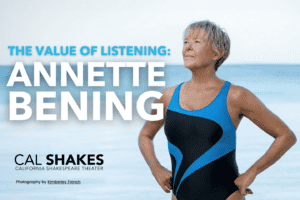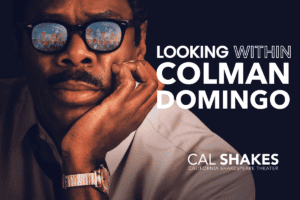
Reflections on the Solar Eclipse
By Philippa Kelly, Cal Shakes Resident Dramaturg These late eclipses in the sun and moon portend no good to us. Though the wisdom of nature

Terrapin Crossroads Announces Lineup for ‘Terrapin Roadshow’
First East Bay Terrapin Crossroads event to feature: Grahame Lesh, Dan “Lebo” Leibowitz, Stu Allen, Steve Adams, Alex Koford, Jason Crosby, and many more Special

The Value of Listening: Annette Bening
(Update) In our excitement to celebrate Cal Shakes alum and Oscar nominee Annette Bening, we misspoke regarding one of her Cal Shakes credits – the

Looking Within Colman Domingo
“I think as artists, as actors, we are always watching. We’re watching heroes. We’re watching ordinary people do extraordinary things every single day. We’re watching

Zendaya and the Women Donors Network Donate $100,000 to the North Star Fund
Special thanks to Cal Shakes alum, Zendaya, for her $100,000 donation to the North Star Fund! Her support moves us forward in a big way toward

Summer Conservatory Registration is Open!
Join us for an exciting and immersive theater experience! This camp is a must-attend for theater enthusiasts and aspiring actors alike. You’ll have the opportunity